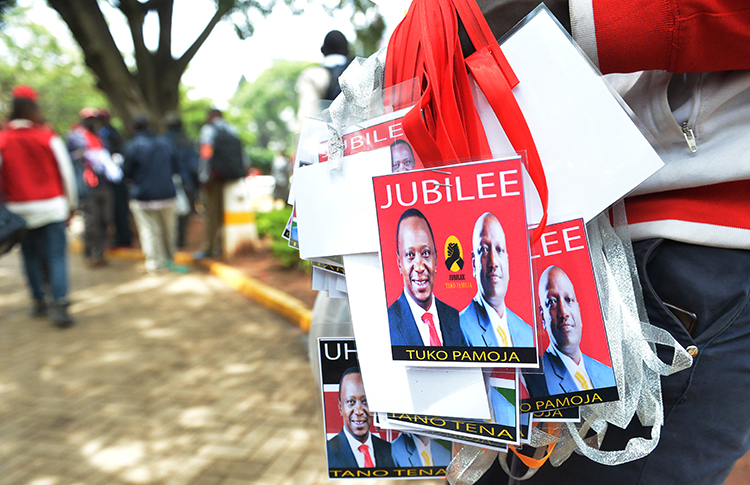Nairobi, July 5, 2017– Kenyan authorities should ensure that proposed social media guidelines do not prevent journalists from reporting critically or close the space for public debate ahead of general elections due to take place August 8, the Committee to Protect Journalists said today.
Two government bodies–the Communications Authority, which has regulatory oversight in broadcasting and telecommunications, and the National Cohesion and Integration Commission, which promotes national unity–are reviewing the results of a public consultation on draft guidelines that they proposed to prevent the spread of inflammatory content and hate speech on messaging and social media platforms.
A copy of the proposed guidelines, viewed by CPJ, warns social media users and bloggers against using inflammatory language, hate speech, or ethnic contempt. The vaguely worded proposal says that broadcasters will be held accountable for all content aired on their platforms and requires social media users to be “polite, truthful and respectful” and to adopt a “civilized” tone when posting political content. Social media users must seek government approval of potentially inflammatory political content 24 hours before posting items, according to the proposed guidelines.
After the results of the public consultation are reviewed, the Communications Authority can approve the proposal without parliamentary approval, according to legal experts with whom CPJ spoke and the 2010 consumer protection regulations.
“The guidelines as currently drafted could constrict the Kenyan press from reporting and commenting freely on political events,” said CPJ Africa Program Coordinator Angela Quintal in New York. “With elections scheduled to take place in August, we urge authorities to ensure that journalists are free to share news and opinion across all platforms without fear of reprisal.”
The proposal refers to prosecution for hate speech under the National Cohesion and Integration Act, which allows for punishments of up to 1 million Kenyan shillings (US$9,600), and for publishing “inciting material” under the penal code, which carries prison terms of up to three years in prison and or a 5 million Kenyan shillings fine.
Under the guidelines, the Communication Authority will resolve complaints in broadcasting and telecommunications, and the National Cohesion and Integration Commission will investigate and bring up for prosecution cases against individuals and political parties.
Faith Waigwa, vice-president of the Law Society of Kenya, told CPJ that although the guidelines do not carry the same weight as parliamentary legislation, they are used by the courts to help interpret and apply existing laws.
Linus Kaikai, chairman of the Kenya Editors Guild, told CPJ, “We are very concerned when a blanket declaration is made because it can affect the work of legitimate, self-regulating media.”
The proposals, which were first circulated June 21, come ahead of Kenya’s general election in August. A commission set up to investigate the violence surrounding Kenya’s elections in 2007 was told by the ministry of information that some radio stations aired inflammatory content. A study by the BBC World Service Trust cited international reports from January 2008 as saying that some local media were “responsible for fanning ethnic hatred and fueling violence.”
